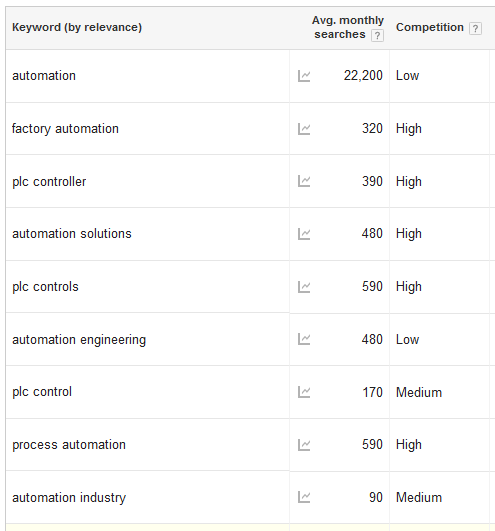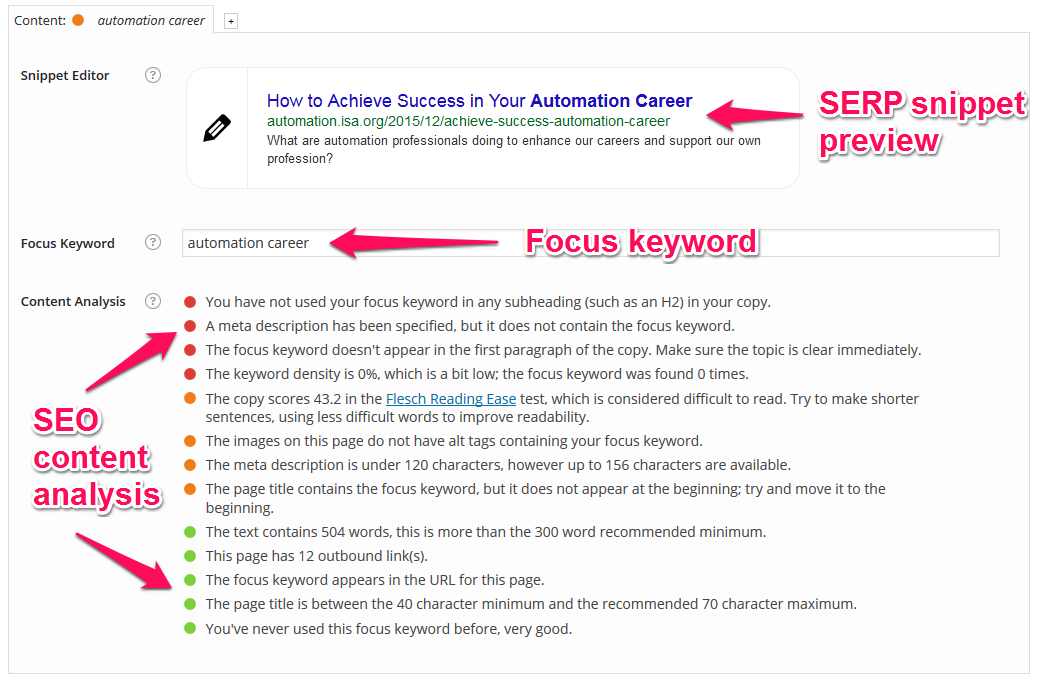This post is authored by Joel Don, ISA's community manager and a social media & content marketing specialist.
You spent a lot of time and money on your new industrial website. You like it. Your employees like it. Your customers love it. But ultimately none of this really matters unless your site is…popular. And popular in a very special way. In a search engine optimization kind of way.

Sites need to be good looking. More important, they need high-quality content. You’ve probably ensured that your platform is responsive, because Google Analytics will tell you half of your traffic is now coming from mobile devices. But if people enter search terms in their browsers and your site doesn’t show up on the first or second page (called SERP in geekspeak), your site is just not popular in a way that ultimately matters from an SEO perspective.
SEO can make people nervous. It seems highly complicated, or some kind of online cat-and-mouse game with no resolution. Sure there are technical elements of SEO, and there's a huge industry of agencies and consultants that can help drive more traffic to your pages. But the fundamentals of SEO are really quite simple. Basically websites depend on each other to boost each other’s popularity. Let’s draw a corollary to high school. When the captain of the football team dates the head cheerleader, each is leveraging social rankings to mutually increase individual popularity. When they are voted king and queen of the prom, even more popularity. SEO works in a similar way.
Popular sites are findable. They have achieved the coveted blessing from search engines in the form of higher page rankings because the content demonstrates key attributes such as authority, importance and credibility. Where does authority, importance and credibility come from? Easy. From the same place it’s always come from – the recommendations and referrals of others. In other words, sites become great when other sites (especially great ones) link to them. Is your site great? Is the site linking to you great? Try these tools to check on site authority. Enter a URL into Moz’ Open Site Explorer and check out the MozBar extension for Chrome or Firefox.
Networking is key
Traditional business networking is another analogy for explaining how to build SEO for your industrial or manufacturing website. You meet people at meetings and events, exchange ideas and business cards. Your new connections return to their companies and add you to a database. That’s a link. They refer other people to you. More links. Now you’re building credibility. Your active networking is driving people and business to you. And when people who already have established their importance and authority connect to you and in greater numbers, your credibility rises in kind and you become more important and authoritative.
Now convert that concept of traditional business networking to your industrial website marketing strategy. That’s SEO in a nutshell. Simple, right? Bill, from SMR Digital says, "It’s still about making connections and people help make those connections. Search engines acknowledges those choices, and rank sites accordingly. If you're not popular, you're not (easily) searchable."
There are many things you can do to increase the number of links (also called backlinks) to your website, as well as boost the quality of links, i.e. links coming from sites that are deemed important by search engines. A word of caution. Some businesses have tried to game the system by hiring SEO firms to trick search engines into making a site is popular through backlink schemes. Google hires thousands of engineers with doctorates from the best schools to be on the lookout for such fraud, and it will punish sites that are artificially made to look popular via dubious referral links. Earn your popularity the organic way.
What’s in a Word?
Another essential SEO best practice is to make sure every page on your site has been optimized for a targeted keyword or phrase. Why are keywords so important? Look at it from the point of view of a search engine. It only knows your site by your words, not your intent. And since you have to communicate with words, your best approach is to carefully pick keywords that are recognized and indexed. Even graphics and photos are ranked based on keywords, so don’t forget to use keywords in image filenames and edit optimized alt tags. If you buy a stock photo, rename it and tag it, else you're throwing good SEO into the trash bin.
Since search engines are looking for words used in high volumes, you should avoid inventing new terms or trying to rank for obscure concepts or interesting acronyms. Cool and creative words and phrases may be entertaining or delight the whim of your CEO, but if the search engines don’t get it, your site won’t rank.
You are competing for clicks, so page and post titles especially need to follow two fundamental rules: 1) They should be optimized with keywords that rank with the search engines and; 2) They should tell the reader exactly what the article or post is about. If a search engine or potential reader has to figure out what a SERP snippet (more geekspeak) is about, the traffic will go elsewhere. That's why you'll get more traffic for a post titled "How to Design a SCADA System for a Rural Water Reclamation Center" vs. "Reduce Costs with Smart Project Design." Notice the first title is rich with industry keywords; the second headline contains generic messaging. Search engines need all the help they can get. Don't leave them guessing.
You’ll do even better if you select words or phrases that are high in demand by searchers or are trending. For that, there’s help with a great tool for researching popular keywords: the Google AdWords Keyword Planner. Optionally for key phrases, try the Google Trends tool. For now you can disregard the information on bid prices displayed in these tools; that's used for per-per-click marketing campaigns. Here’s another quick tip. You can also use Google Analytics to view keywords selected by visitors to your site. Go to Acquisition > Search Engine Optimization > Queries.
 Google AdWords search result.
Google AdWords search result.
Competition for keyword dominance
You want to pick words that show a high search volume, but remember that you are competing for search engine attention against other sites also using that keyword or phrase. Another strategy is to target for key phrases that have little competition. So you are going to need to experiment with different key phrases to assess where you can achieve optimal SEO traction. You may be surprised to find you can drive traffic for key phrase niches. How to test your keyword or phrase? Go to a search engine, enter the word or phrase and review the SERP.
Always keep in mind that search engines rank pages by a focus keyword or phrase. A content optimization strategy ensures that the focus keyword is used in titles, main content and in the meta description for a page. If your site is based on WordPress, the Yoast SEO and All in One SEO Pack plugins can help you optimize titles, content and metadata to maximize SEO. They’ll even preview how your sites shows up in search.
 Yoast SEO WordPress plugin SERP snippet, keyword and content analysis tool.
Yoast SEO WordPress plugin SERP snippet, keyword and content analysis tool.
Simple approach to SEO
That’s it. Focus on the fundamentals. And remember that ranking higher for SEO is not a quick fix. You need to create good content, lots of it and on a regular schedule. Over time establish authority and credibility for your pages by attracting and soliciting links from other websites, especially sites that search engines already consider to be important. And now you know why guest blogging and commenting (fill in that URL field if offered when you comment!) on posts at sites with established authority and credibility is an SEO strategy. These activities are proven to generate more backlink opportunities to your industrial site. And make sure to share content widely via Facebook, LinkedIn, Twitter and other social networks. That’s the digital marketing version of networking at a business event.




